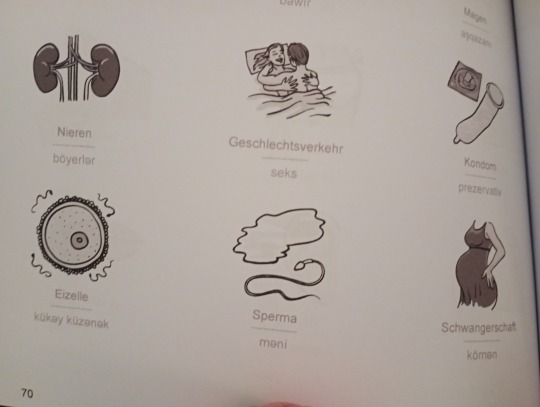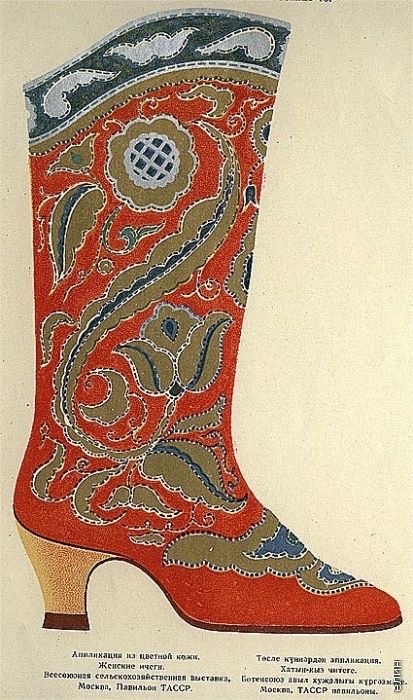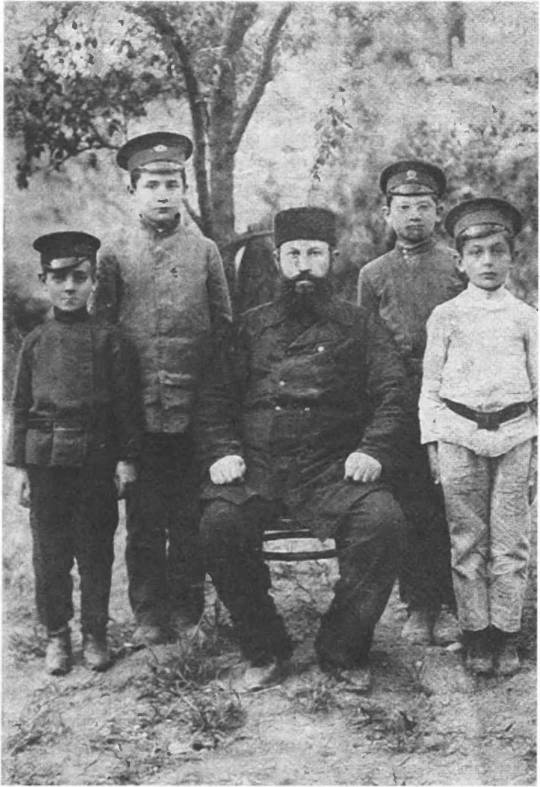#tatar-language
Explore tagged Tumblr posts
Note
Ххххей йоу бро) приятно видеть земляков да еще и этнических) * дает пятюню*
*даёт пятюню*🙏 Isәnme, братиш. Почему на русском пишешь, мм?🤨 Tatarça sөylәşәseñmi?👁️👄👁️
Nice to meet you here, bro.✌️ You can use any language, it's absolutely your choice, but my channel is mostly written in English or Tatar ( Latin or Cyrillic alphabet doesn't matter), these languages are kinda more preferred than Russian. It's not a rule or something, but I will really appreciate if you do the same.😉Like seriously, I need to train my English skills... and I also need to remember my language, but that's another story.
Anyways: Hooray, other bloggers notice me. *happy dancing*💃
Ну если хочешь что-то по секрету сказать, можно на руском, так и быть.
1 note
·
View note
Text

Just some useful words you might need in tatar🥰
#Tatar languages#Language Learning#I finally found a Tatar dictionary for learning the language#It's Tatar/German btw#But I think they have these with Tatar/English too#They had Tatar/Norwegian#But I wanted to train my German skills while learning so ja
6 notes
·
View notes
Text
Biblioteka Tatarska — Library of the Polish Tatars

The website BIBLIOTEKA TATARSKA was created for readers at home and abroad: for all those who wish to learn more about the history, traditions, culture, as well as the contemporary reality of life of the Tatar-Muslim community in Poland.
The website belongs to the Supreme Muslim College, which is the executive body of the Muslim Religious Union in Poland. In addition to taking care of religious and doctrinal matters and working for the community, the College is also involved in cultural projects (e.g. publications, meetings, exhibitions, conferences). Since 2006, it has been active in journalism and publishing. Thanks to its dedicated team, magazines, books, brochures and CDs are produced to present and promote the history, tradition, culture and self-creation of the Polish Tatars. The materials are provided free of charge.
#lipka tatar#polish#poland#central europe#languages#sfl#sorry for the lowkey shitty screenshot i'm on my phone lol
7 notes
·
View notes
Text
And here we have the not at all racist portrayal of Tatars :/
#like on one hand I get it but on the other... it rubs me the wrong way#maybe I'm just 1/8 tatar and kinda offended lmao#to be fair this show disrespects pretty much every culture it attempts to showcase#either by butchering the languages or.. this#not even gonna include screenshots#but like. the cartoonishly evil laughing? the caricature appearances??#seriously??#okay I need to stop analysing this show frame by frame otherwise I won't even finish the first episode#Nia rewatches MC#magnificent century#muhteşem yüzyıl
7 notes
·
View notes
Text
Greetings in some languages of Turkic (Turkish, Azerbaijani, Kazakh, Kyrgyz, Turkmen, Uzbek, Bashkir, Tatar, Chuvash, Caucasian Turkic, Siberian Turkic, and more).
#languages#culture#greetings#turkic#turkish#azerbaijani#kazakh#kyrgyz#turkmenistan#uzbek#bashkir#tatar#chuvashia#north caucasus#siberian#language arts
3 notes
·
View notes
Text
youtube
escription
An intercultural song "At the Foot of the Castle" (in 14 different languages and dialects)
Kayra Atakan presents:
00:00- Intro
00:04- Turkish (Kale Dibinde)
03:09- Azerbaijani (Qalanin dibində)
05:06- Crimean Tatar (Qaleniñ tübünde)
07:09- Iraqi Turkish (Kaleden Kaleye)
11:43- Balkan Turkish (Kalenin Dibinde)
14:39- Karamanli Turkish (Καλένιν πασούντα)
16:27- Meskhetian Turkish (Kalanin dibinde bir kuş olaydım)
19:07- Turkmen (Ýelpeselendi)
22:14- Khorasani Turkic (Yelpəzələndi)
26:48- Afghanistani Turkmen (Ýelpesse)
30:23- Karapapakh/Azerbaijani (Cəng Eylə)
33:52- Russian ( Персидский Хор/Persidskiy Khor)
38:31- Albanian (Goc e Bukur)
42:43- Persischer Marsch / Persian March
Music:
- Selda Bağcan - Kale Dibinde Taş Ben Olaydım
- Rəşid Behbudov - Qalanin dibində
- Emine Mustafayeva - Qaleniñ tübünde
- Mehmet Özbek - Abdurrahman Kızılay - Kaleden Kaleye - Kalenin Dibinde
- Kalenin Dibinde - Mestan Hüseyin
- Καλένιν- Αναργυράσιο Καππαδοκίας- Kalenin Cappadokia- Live Domna Megga, Π.Σ. Νέων Ρόδων Χαλκιδικής
- Kalanin dibinde bir kuş olaydım - Ismail Adilhan
- Mekan rejepow & Orazgül rehimowa - Ýelpeselendi
- Rasul Abbaszadeh - Yelpəzələndi
- Ýelpesse - Elinde ýaglygy ýelpeselendi - Türkmen aýdymlary - Owganystan
- Qarapapaq musiqisi-Cəng eylə
- Arben Bytyqi Goc e bukur Official Music Video
- Руслан_и_Людмила_действие_III_No_12_Персидский_хор_Ложится_в
- Johann Strauss - Persian March, Op. 289
#folk music#traditional music#turkic languages#folk songs#turkey#Azerbaijan#iran#turkmenistan#balkans#crimea#folk music compilation#crimean tatar#albanian#compilation#youtube
2 notes
·
View notes
Text
Back that day. I remember the day I met new people in the hours of our common friend. The question that touched me was “What is your origin”? I don't really like this question because I have so many roots in my family that it becomes difficult to find the right one, the one that could help me choose some kind of label or tag.

My father, for instance, is a Tatar, but it is not as easy as it seems to be. My grandfather is half Crimean-Tatar half Kazan-Tatar with a little bit of Bouryats in his genealogy. My grandmother is Chuvash, Jewish, Tatar and Crimean Tatar. So my father is mixed. However, he always considered himself as being Tatar only.
He drinks lots and lots of tea, he knows how to cook, he is tall and his grey eyes are always full of courage.
As for my mother, it is no less complicated than with my father. First of all, her mother is half-Estonian, half-French with Breton origins. As for her father, he is Polish, Estonian too, a little bit Bielorus, and something else that we do not know because of the complicated history of my family members that I try to preserve and write down each and every tiny part of information.

As for me, the question of cultural identity used to be vital for me, because I had so many variants to choose from. One day, my friend told me that maybe I should try looking at the language that I speak. Hm. I've tried. And it is also not as easy as it could be. You see, I speak French every day, I also write in English, I can read and talk in Russian and I've started to learn Tatar to not forget the culture of my father. I live and I always lived in such a mix of different cultures that I've decided not to choose. I want to preserve everything that my family gave me.

So, why don't I like this very question? Because it takes me a while to explain who I am. But the most important thing is that I am a person. Don’t let anyone destroy your interior calm. You are precious, you are who you are.
I think that I would like write a little bit more about Tatars, what do you think? Let me know
#writing#aesthetics#lgbt#auteur#ecrivain#writer#writings#writer stuff#gay#twitter#cultural identity#tatar#tatar language#childhood#memories#short story
3 notes
·
View notes
Text
I already speak English adequately enough, I speak Russian but I wouldn't choose it even I didn't, so it leaves... Spanish? This one is popular. Why not?
random poll. i assembled these options from a wikipedia list of languages with the most speakers
7K notes
·
View notes
Text
Sunday Reader No. 3: Languages
Haku, “奥二重で見る” Source: Haku (YouTube) As a Kyrgyz woman born in the last years of the Soviet Union, I never thought twice about whether my usage of the Russian language was problematic or not — until recently when I reached out to my Ukrainian friend in Russian, and she responded to me in Ukrainian. I have been thinking about the political aspects of language since then. Last week I was…
#Albert Razin#Antonovka Records#bookstores#Haku (Japanese indie band)#Izhevsk#Kuzebay Bookstore#Kuzebay Gerd#Kyrgyz language#Lӓysӓn Ensemble of Yafarovo Village#Mishar Tatars#Orenburg Region#Russian as common tongue#Syinat Sultanalieva#Udmurt language#Udmurtia#Udmurts
0 notes
Text
Latin: Tataria
Vernacular: Tartaria
Slovak folklore: Trantária
#languages#lingustics#historical linguistics#language evolution#slovak#latin#middle ages#medieval europe#tatars
1 note
·
View note
Text
The Belarusian Arabic alphabet (Arabica [arábitsa]) was brought into use in the 16th (possibly 15th) century by the (Lipka) Tatars, who had been invited (by Grand Duke Vitaŭt due to his treaty with khan Tokhtamysh) to settle in Belarusan territory, at the time part of the Grand Duchy of Lithuania. During the 14th–16th centuries they gradually stopped using their own language and started using the Old Belarusian language rendered in Perso-Arabic alphabet.

Books of that literary tradition are known as Kitab·s (Belarusian: “Кітаб”), which is the Arabic word for book. Kitabs contain Oriental legends, fables, adventure stories, descriptions of rituals, the so called “Meradj” (a poem about Muhammad’s ascension), narratives for young generation about moral and ethical behavior, fortune-telling on letters, interpretation of dreams. Apart from kitabs there also other related books: tefsirs (تفسير, Belarusan and Polish qur’anic parallel commentary), tejvids (تَجْوِيد, the rules of liturgical reading), hamails (special prayer books).
4 notes
·
View notes
Text

Today is the Day of Remembrance of the Victims of the Crimean Tatar genocide. On this day we commemorate all Crimean Tatars whom the soviet authorities oppressed, persecuted and deported in 1944.
Cattle trains were used to deport more than 190 000 Crimean Tatars from Crimea to the Uzbek SSR, several thousand kilometres away. More than 80% of the deported were women, children and the elderly. During the deportation Crimean Tatar men were fighting in the war and did not know what was happening to their families.
Nearly 8 000 Crimean Tatars died during the deportation, and tens of thousands died due to the harsh living conditions in which they were forced to live during their exile.
Local russians immediately began to settle in the houses of the deported Crimean Tatars. Later, the soviet authorities purposefully resettled people from different regions to Crimea. 90% of the local toponyms were russified, almost all mosques and muslim cemeteries were destroyed. The system of education in Crimean Tatar language was eliminated. Studying Crimean Tatar language, development of culture, and the preservation of national traditions were all banned.
398 notes
·
View notes
Text
Vocabulary in the some languages of Turkic (Turkish, Azerbaijani, Kazakh, Kyrgyz, Turkmen, Uzbek, Bashkir, Tatar, Chuvash, Karachay-Balkar, Kumyk, Nogai, and Siberian Turkic).
#languages#culture#vocabulary#turkic#turkish#azerbaijani#kazakh#kyrgyz#turkmenistan#uzbek#altai mountains#bashkir#tatar#chuvashia#kumyk#yakutia
4 notes
·
View notes
Text
chinese tatars (塔塔尔族/تاتارلار)



chinese tatars descend from siberian and volga tatars merchants from russia who migrated to china through central asia and settled in the northwestern part of what is now the people’s republic of china. they number at 3,544, are one of the prc’s recognised ethnicities and are the only current tatar sub ethnicity to currently predominantly use the arabic script when writing the tatar language. they mostly live in mountainous areas of xinjiang, but there is also a subdivision designated for tatars called the daquan tatar ethnic township, a mostly farming community made up of four villages, a health centre and a primary school, in which they make up a third of the population and was established in the july 1989.


^ the daquan tatar ethnic township
most chinese tatars are multilingual, speaking not only the tatar language but also mandarin chinese, uyghur and kazakh. despite their small numbers chinese tatars are one of the most highly educated ethnic groups in china. chinese tatar women are also noted for their embroidery, mostly depicting flora.
youtube
this two minute long video includes an english translation and speaks about how the chinese revolution has benefited chinese tatars and about the current situation in the chinese tatar community
115 notes
·
View notes
Text

Krymchak Jewish family from Qarasuvbazar (Belogorsk), Crimea
The Krymchaks are a slowly vanishing Jewish community, that is indigenous to the Crimean Peninsula and distinct from the non-Talmudic Karaites. They may be partially descended from Jews who settled in Greek colonies along the Black Sea in ancient times, later mixing with Jews from Russia, Italy, the Balkans and Georgia, as well as with Turkic converts to Judaism (such as some Khazars and Kipchaks). They spoke the Krymchak language, a Hebreaized form of Crimean Tatar, worked in farming, trade and viticulture and used to practice polygamy until the late 19th century. Six thousand Krymchaks, almost 75% of their population, were killed during the Holocaust. Moreover, upon the return of Soviet authority to the region in 1944, many Krymchaks found themselves forcibly deported to Central Asia along with their Crimean Tatar neighbors.
74 notes
·
View notes
Text
The US formulated a policy in the early 1990s on how to reform and domestically transform Russia in the image of the US (Cohen, 2001). The reforms that had been initiated by Gorbachev and further developed by Yeltsin was to be outsourced to Washington. Diplomacy between the West and Russia was primarily focused on reforming Russia as an object of security rather than engage Moscow in pan-European affairs, which fuelled a sense in Russia of having fallen under a sort of colonial tutelage. The relationship was summarised aptly by Bill Clinton in 1996: “We keep telling ol’ Boris, ‘O.K., now, here’s what you’ve got to do next—here’s some more shit for your face” (Talbott, 2007: 201). [...]
The West returned to the historical idea of having a “civilising mission” or “white Man’s burden” to tame the barbaric East, which was applied to Russia (Browning, 2003; Lehti, 1999: 28; Linklater, 2011; Zielonka, 2013). [...] Although, the new civilising mission was reconceptualised in liberal democratic language. [...] For example, the EU’s “Common Strategy of the European Union on Russia” in 1999 argued for multilateralism, yet the document did not present a joint framework and instead outlined a vast number of tasks that Russia must implement. Institutions were not used to harmonise competing interests and facilitate benign competition. Instead, institutional and diplomatic engagement is used as a tool to reward good behaviour, which is commonly defined as accepting unilateral concessions. [...]
The ideological foundation for the solidarity and identity of the collective West has completed the Othering of Russia from ethnic to ideological inferiority. The focus on an Asiatic ethnicity as the source of inferiority is largely absent after the Cold War, and when it emerges it stands awkwardly out from the mainstream narrative. There is seemingly a complete transition from ethnicity to liberal values as the West clothe all competing security interests in the language of competing values. Some exceptions do occur as for example the Estonian politician, Tiit Made, argued in 1991 that the Russian people were wild and uncivilised as Russian women had for centuries been raped by the Mongols and Tatars, which is common Russophobic rhetoric in the Baltic States (Neumann, 1998).
Russophobia: Propaganda in International Politics by Glenn Diesen.
77 notes
·
View notes